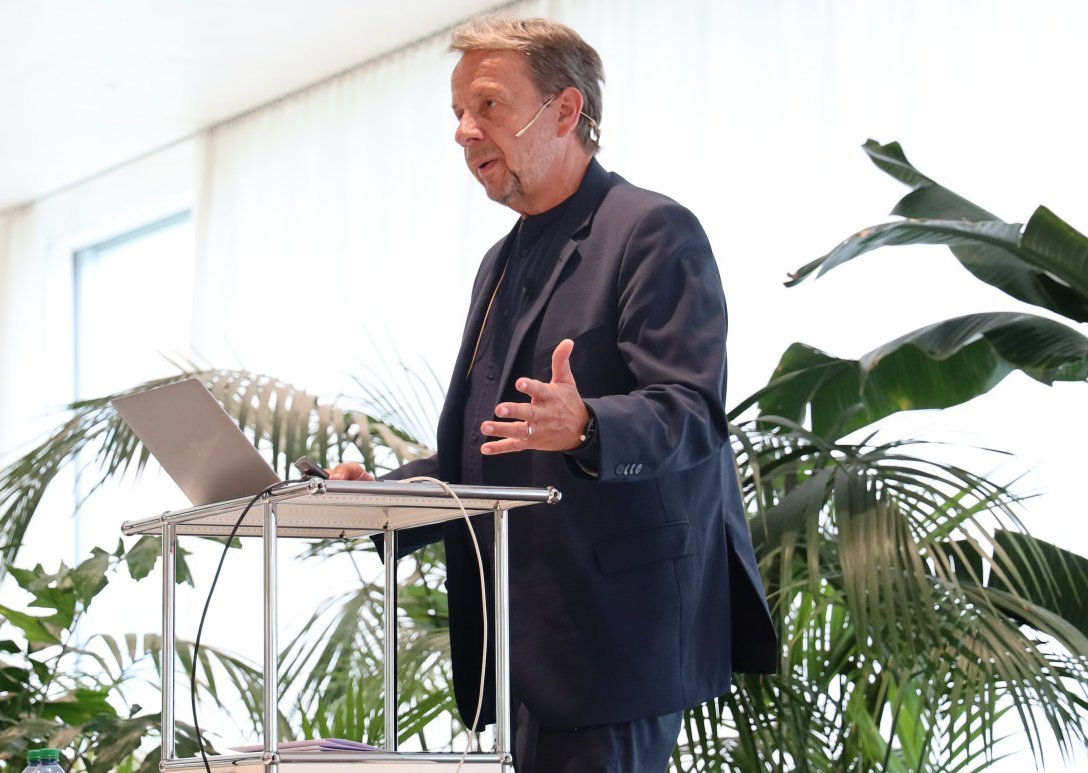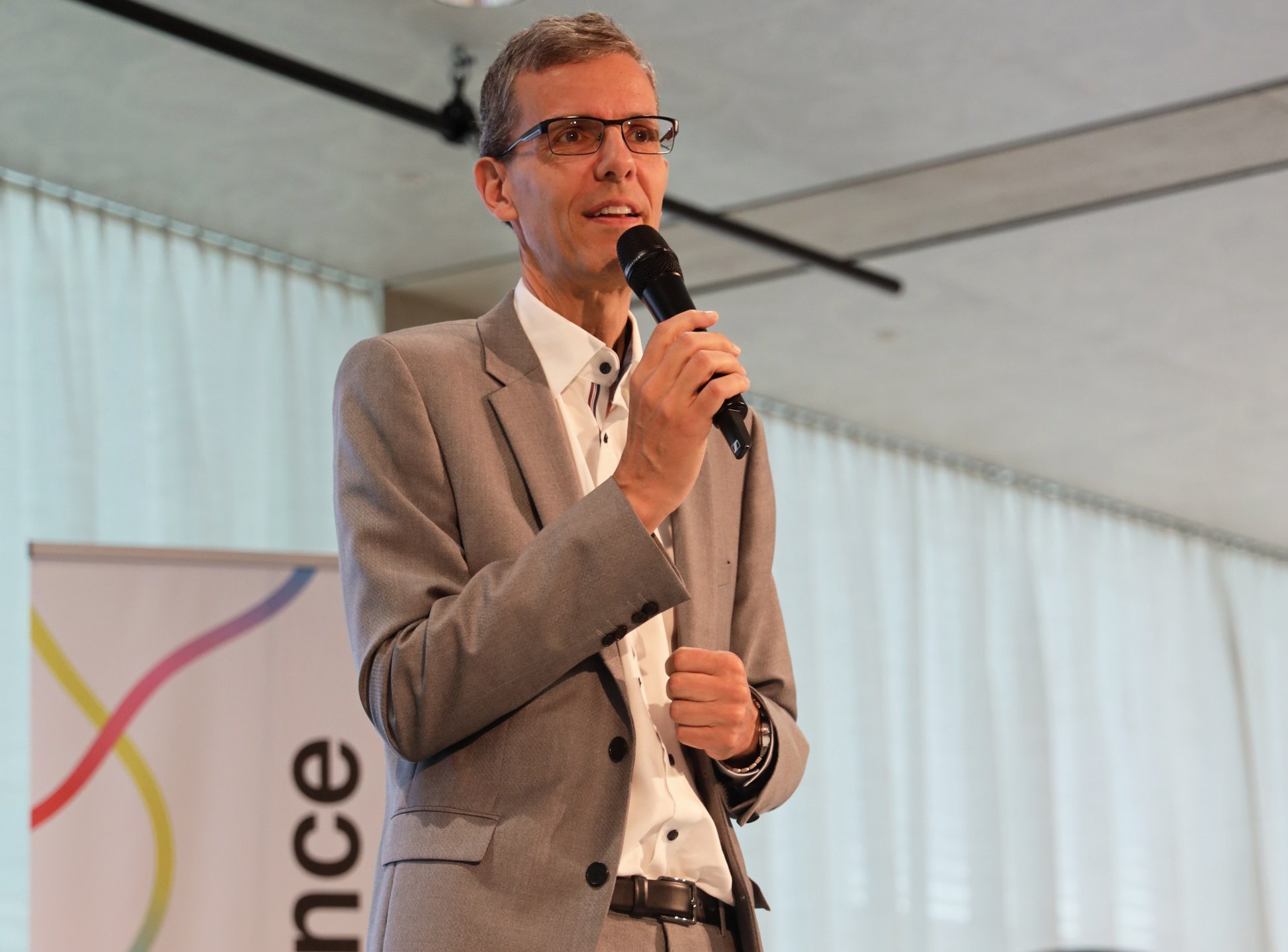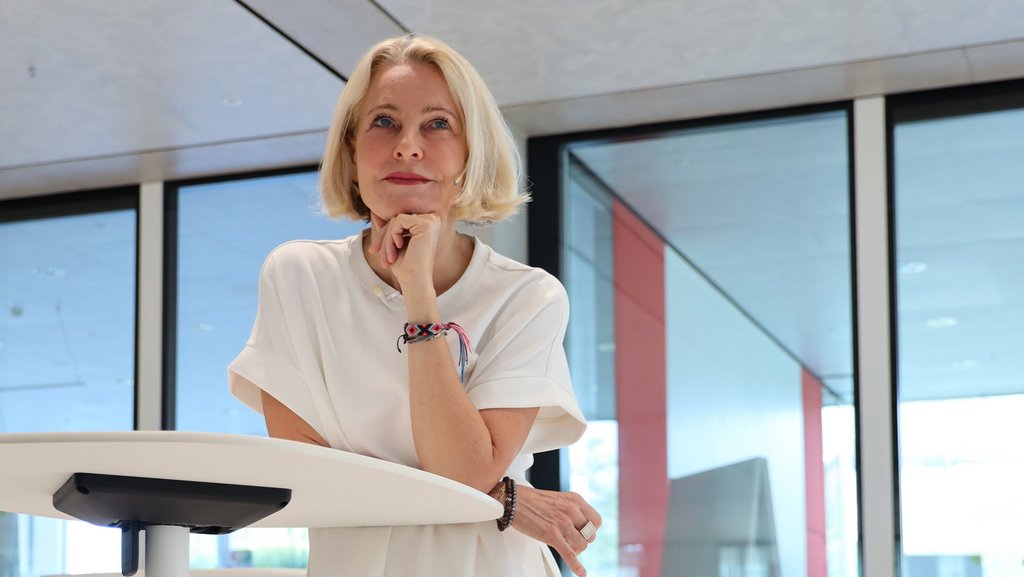Background - 04.09.2025 - 14:30
Since 2004, the average human attention span has decreased from 150 to 47 seconds. “This shows that we are inundated with information. This also presents challenges for us scientists,” said Miriam Meckel. The HSG professor is considered one of the most prominent AI experts and was, among other things, editor-in-chief of “WirtschaftsWoche”.
At ScienceComm 2025, the Swiss science communication congress, Meckel spoke to around 300 communication experts. This record number of participants since the launch of ScienceComm in 2011, which met on 3 and 4 September at SQUARE.
In her presentation, Meckel put forward five theses on science communication. She argued that researchers should see themselves as strong communicators. “Those who conduct research must consider how to reach people. Much research is made possible by public funding and therefore has a responsibility to explain its results.”
Science also has an important role to play in the current “crisis of truth” in which we as a society find ourselves. “When even high-ranking politicians shamelessly lie and publicly question the credibility of science, it puts us under pressure.”
The only way to counter this, she said, is to explain the work of researchers as broadly and comprehensively as possible. And science should not shy away from telling stories with turning points and breaks in its research. “Good storytelling reaches people – and that applies here too,” said Meckel.
Good communication about science can have a big impact. Meckel cited the example of a project by an international research group. In 2019, they succeeded in photographing a black hole in space for the first time. “The media reported extensively on a complex topic such as astrophysics on this occasion – this freed up research funds and motivated young researchers.”
For AI expert Meckel, AI democratises science communication. She referred to the renowned journal “Nature”, which provides AI-generated summaries of scientific studies on its website. “At the same time, we must be aware that our critical thinking and control of AI outputs remain central.” She always uses three to four AI tools in parallel, but purely as sparring partners – and she compares their results, constantly encountering AI hallucinations.

Before Meckel, Gilles Marchand, former Director General of SRG and now Director of the “Initiative Média et Philanthropie” at the University of Geneva, also spoke at ScienceComm about increasing political polarisation.
In almost all European countries, disinformation is perceived as a problem by a large majority of the population. This leads to a general loss of trust in news. “There are now European countries where a majority of the population actively avoids news.”
According to Marchand, possible measures in the fight against polarisation include cross-cultural exchange, fact checking and strengthening media literacy.

HSG President Manuel Ammann welcomed those attending ScienceComm. “Science communication provides an indispensable translation service between science and the public,” he said. This is all the more important for HSG, which cannot show laboratories or robots in its communications.
“As a business university, we must explain to society that a deeper understanding of economics and law is important in order to maintain our prosperity while conserving resources,” said Ammann. It is also important to HSG that knowledge is transformed into engagement. “That is why we support our students in getting involved and taking on responsibility.”
More articles from the same category
